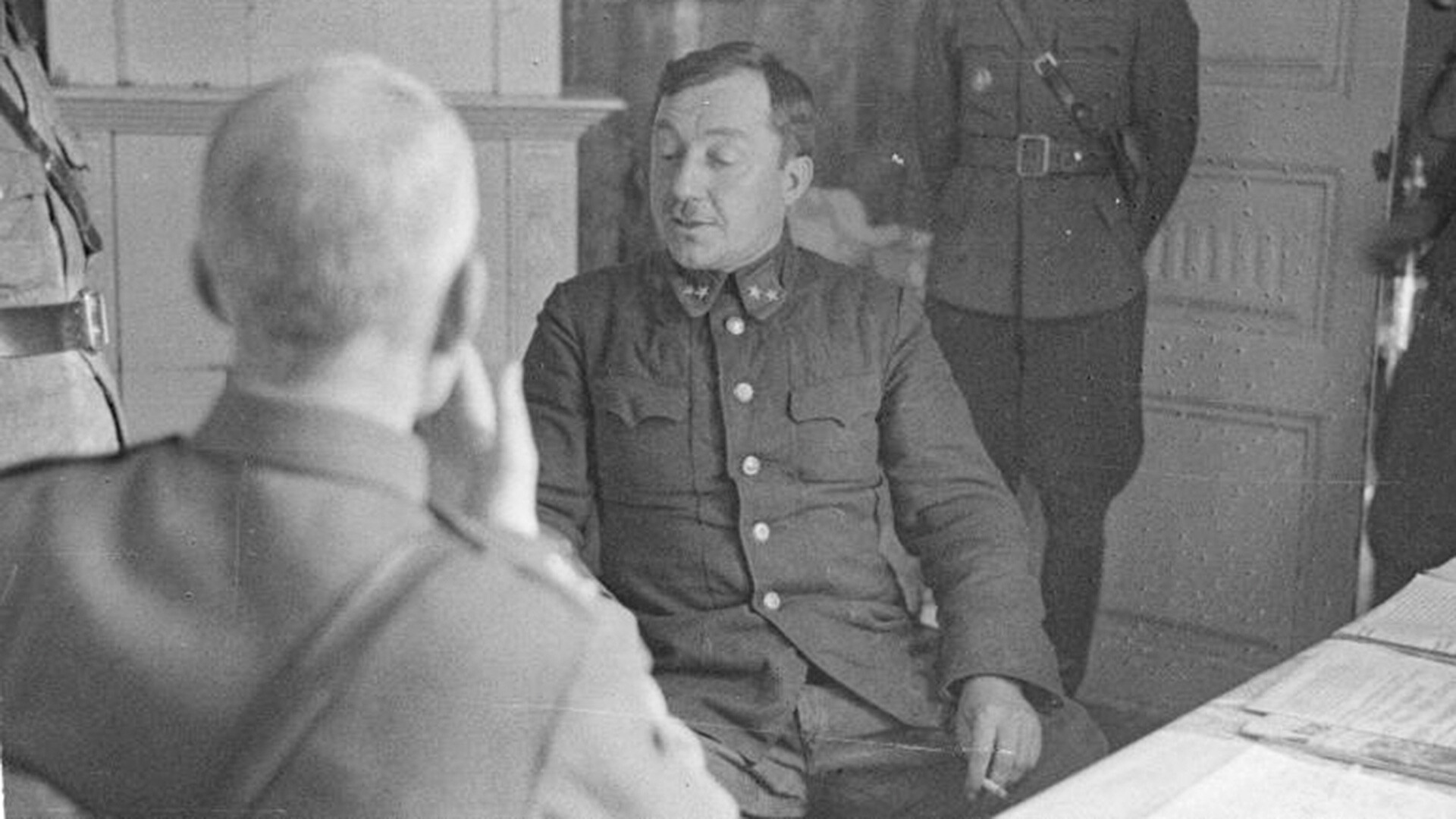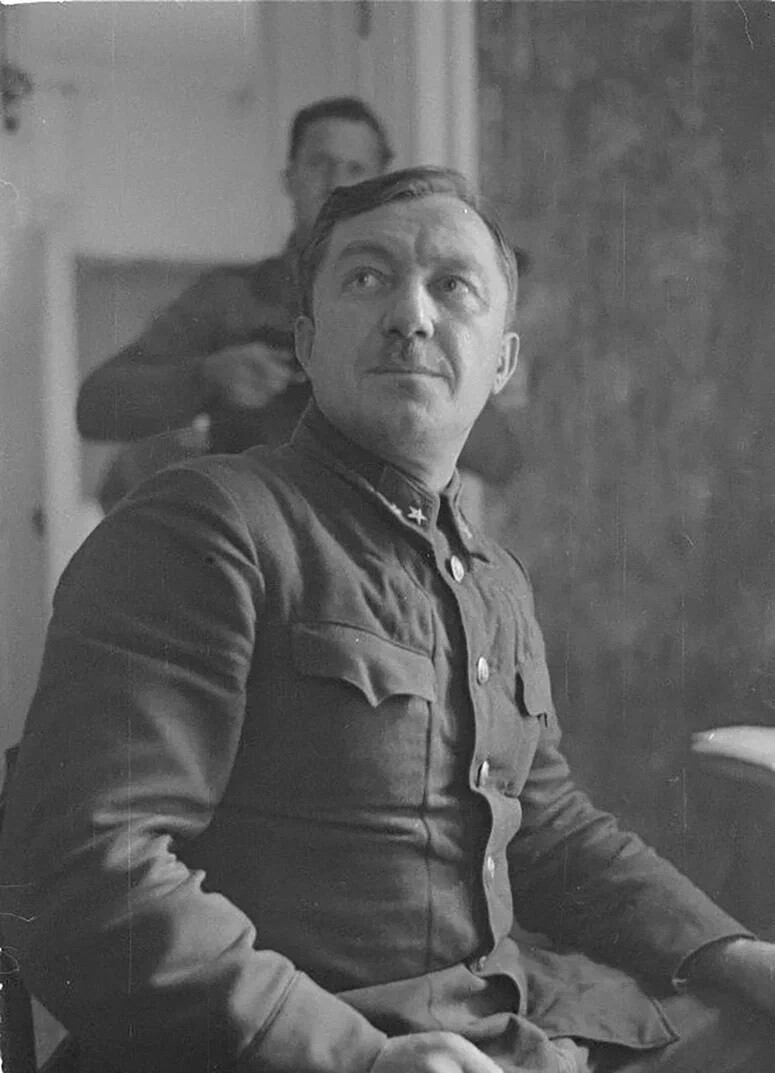
General Kirpichnikov in Finnish captivity.
Jarl Taube/Finnish Wartime Photograph ArchiveFinnish troops fighting on the side of the Nazis surrounded the Soviet 43rd Infantry Division near Vyborg. This happened in late August 1941, during the darkest time of World War II for the USSR. During the attempted breakthrough, division commander Major-General Vladimir Kirpichnikov was captured.
Red Army commanders of such a high rank had not yet fallen into the hands of the Finns (and would not fall into their hands again). Finland widely publicized this fact in the press and even made a documentary film about it.

General Kirpichnikov under interrogation in Finland.
Jarl Taube/Finnish Wartime Photograph ArchiveDuring interrogations, Kirpichnikov revealed to the enemy secret information about the combat operations of his division and the entire Vyborg group of the Red Army. He also wrote a number of notes, in which he criticized the realities of life in the USSR and the system of combat training in the Armed Forces of the country.
"Once in captivity, I was morally depressed and, having lost faith in the fighting ability of the Red Army, believed that the victory would be on the side of Germany and Finland," admitted the general later during interrogations, which were conducted by Soviet investigators.
At the same time, Kirpichnikov categorically refused to cooperate more actively with the Finnish security services and even to lead the anti-Soviet movement in Finland. Eventually, the Finns lost interest in him and, in December 1941, sent him to a prisoner-of-war camp.
The general returned to his homeland after Finland's withdrawal from the war in the Fall of 1944. He refused offers to stay in the country or go to Sweden.
In the USSR, Kirpichnikov was accused of treason and imprisoned. The general pleaded guilty to giving away military secrets, but denied the charges of voluntary surrender and collaboration with the enemy.
On August 28, 1950, the military commander was found guilty, sentenced to capital punishment with deprivation of state awards and military rank and shot the same day. He was never rehabilitated.
If using any of Russia Beyond's content, partly or in full, always provide an active hyperlink to the original material.
Subscribe
to our newsletter!
Get the week's best stories straight to your inbox